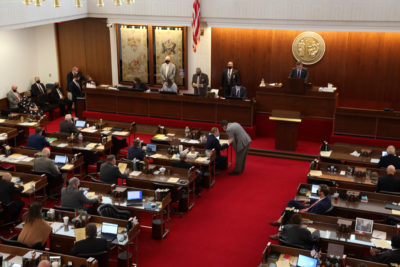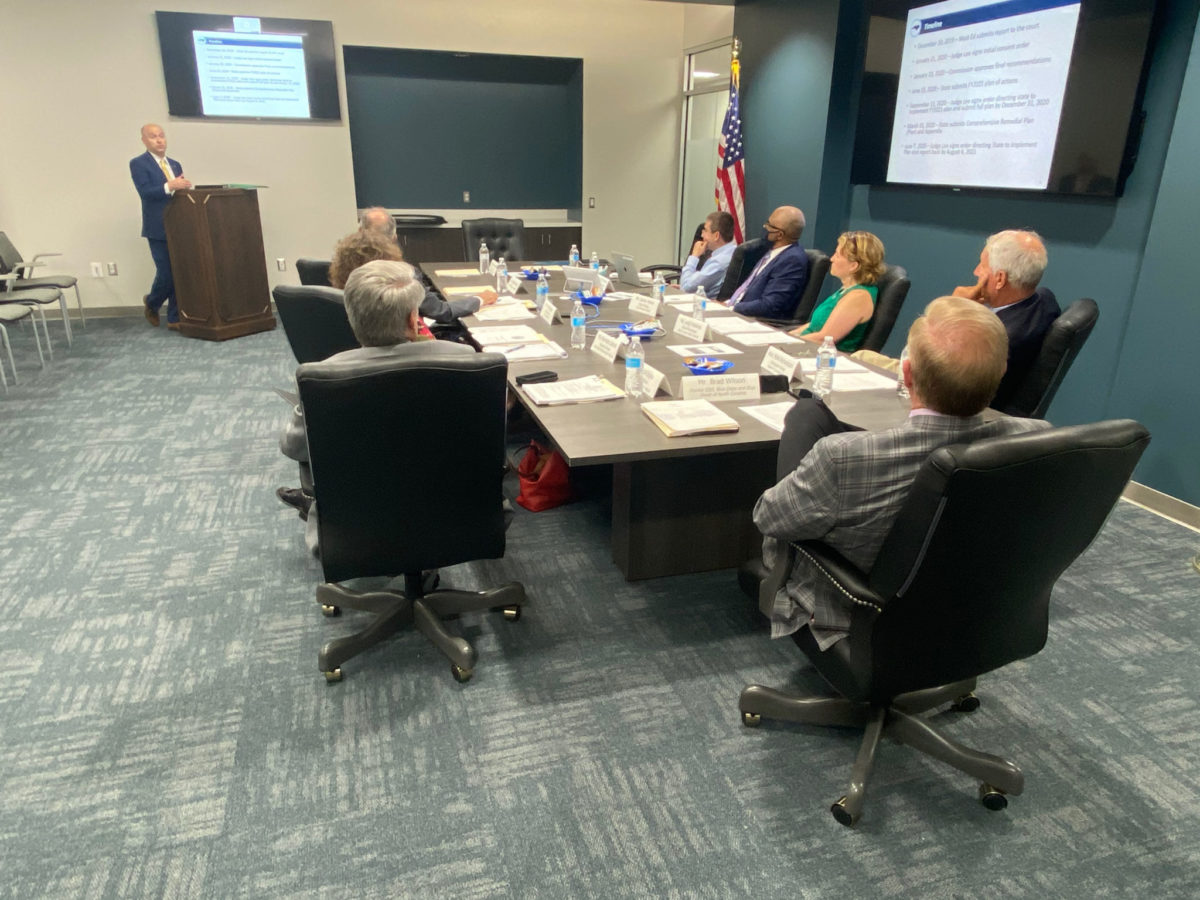

Gov. Roy Cooper’s Commission on Access to Sound Basic Education met today for the first time since before the COVID-19 pandemic and talked about the recently signed court order in the Leandro case.
Brad Wilson, former CEO of Blue Cross & Blue Shield of North Carolina and chair of the commission, said that court order puts into effect a plan that will help address both immediate and future needs of the state’s students.
Here is the landing page for the commission, including its members, and here are the meeting materials.
Wilson said the court order incorporates the recommendations finalized by the commission itself back in January 2020. You can read the commission’s recommendations here.
Plan overview
Geoff Coltrane, senior education advisor to Cooper, gave an overview of an eight-year comprehensive remedial plan — put into effect by the recent court order in the Leandro case — to the commission members. Below is a screen shot of the total estimated costs of the plan through fiscal year 2028. Here is a summary of the plan.
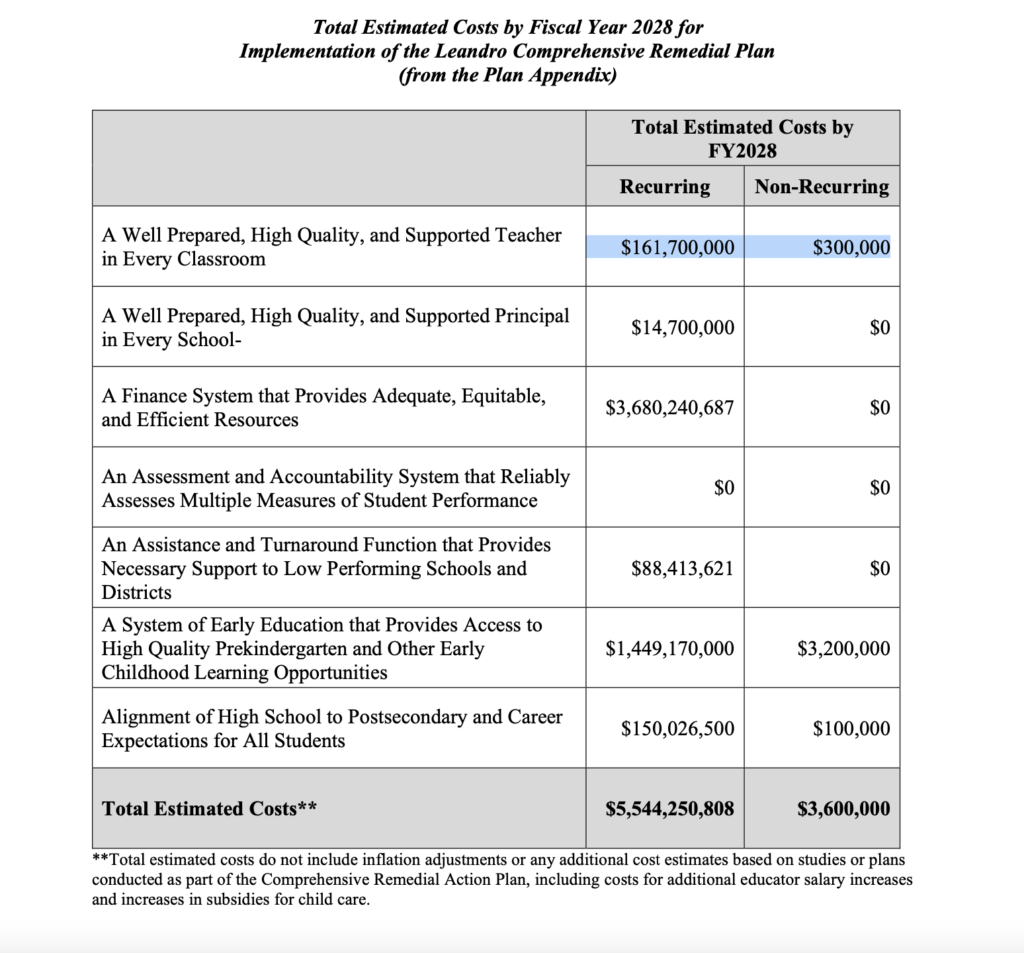

In Coltrane’s presentation, he talked about where North Carolina is right now in terms of addressing the comprehensive remedial plan. The slides below show where he said progress has been made.
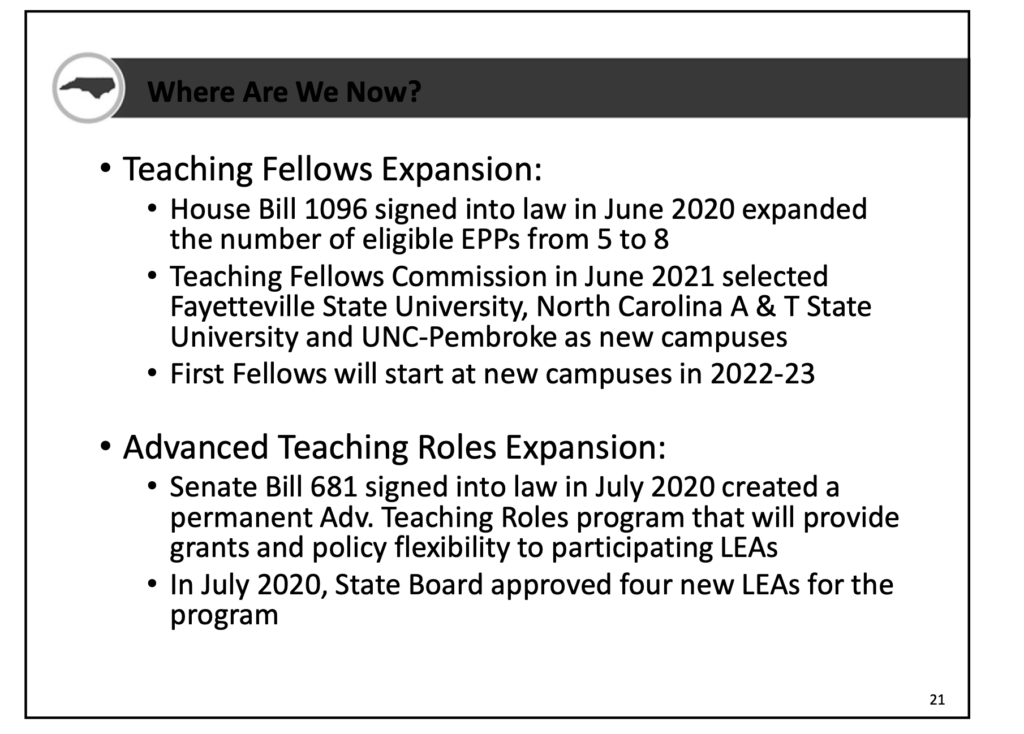

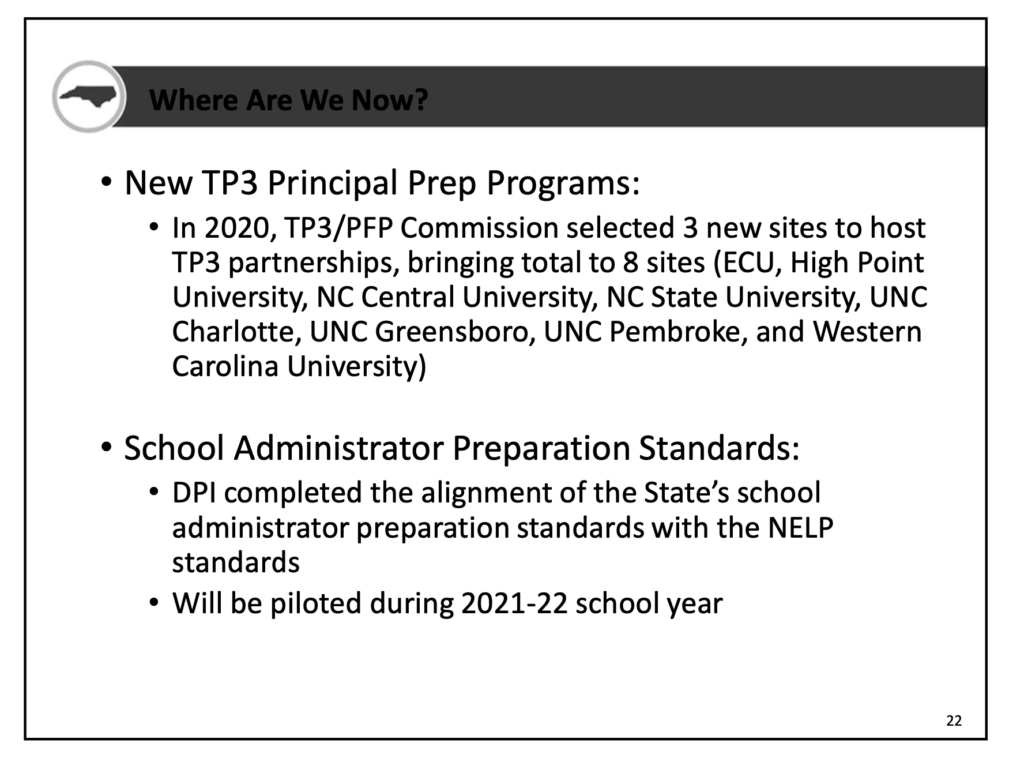

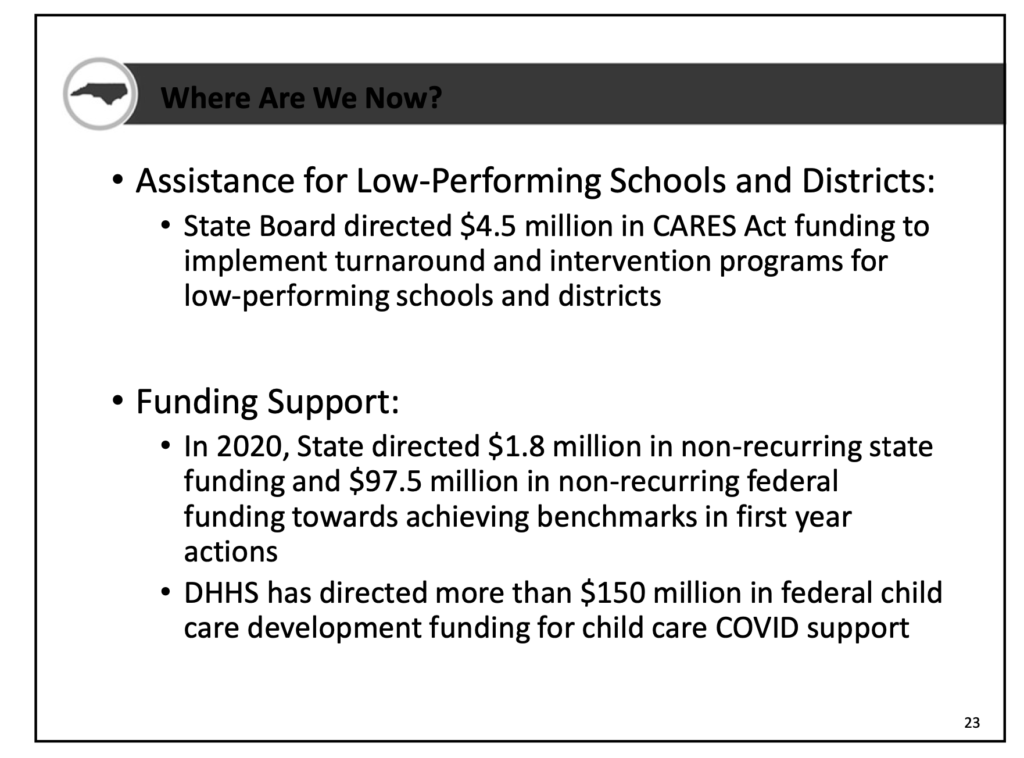

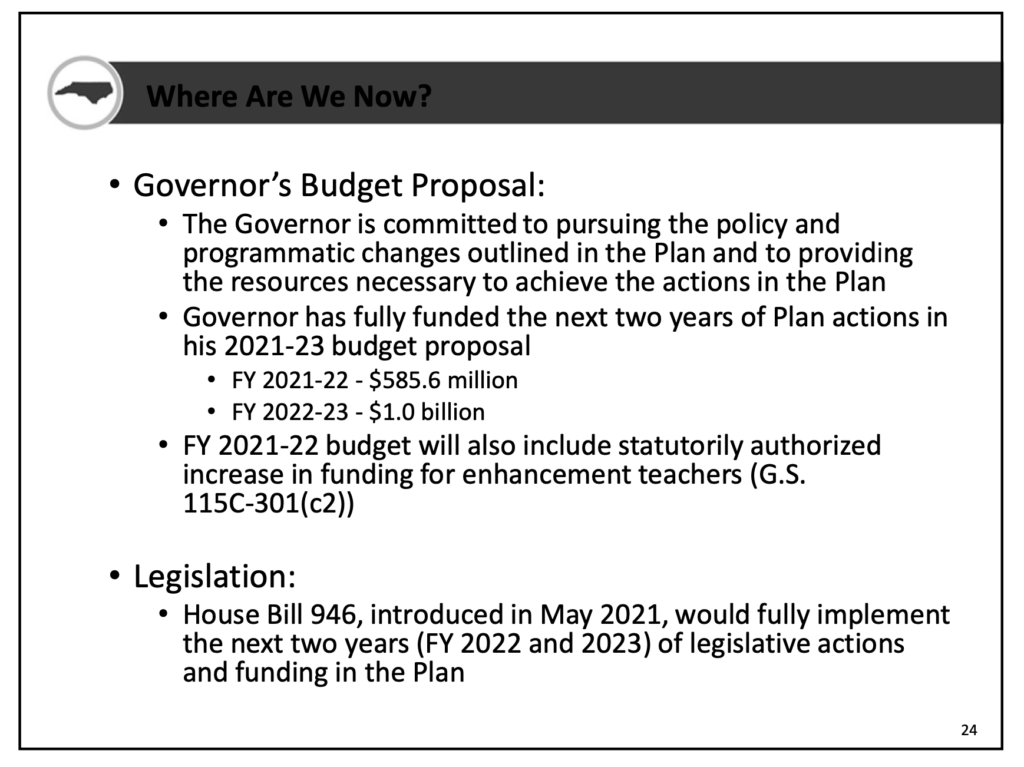

Coltrane said the legislation in the last slide, HB 946, has been sent to the House rules committee.
In his look at where the state is now, Coltrane did not mention any of the provisions or line items in the Senate budget, which passed the full Senate chamber last week. The question was raised during the meeting as to whether a chart could be made comparing elements of the Senate and eventual House budget plans with the provisions in the Leandro comprehensive plan.
General Assembly staff sent a document to members of a Senate appropriations committee who asked a similar question last week, which you can see in this article.
Below is a comparison by Kris Nordstrom, a senior policy analyst at the NC Justice Center. You can find it here as well.
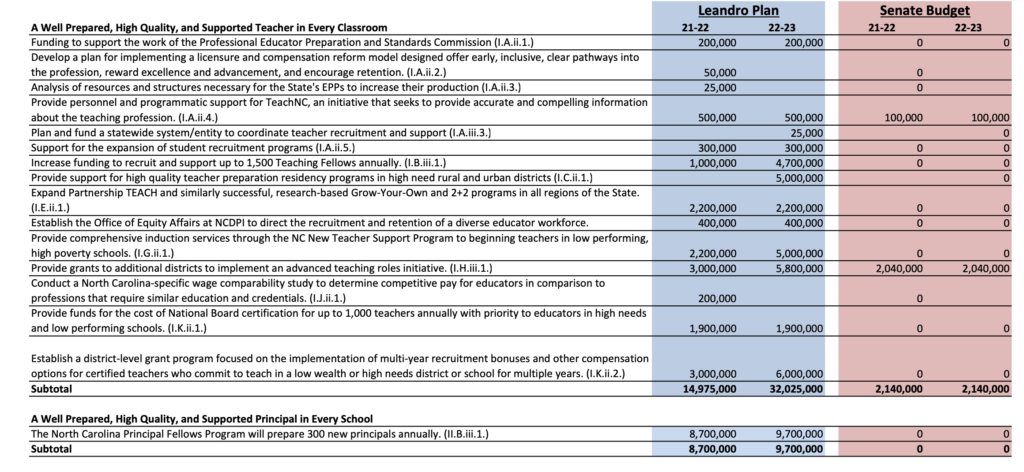



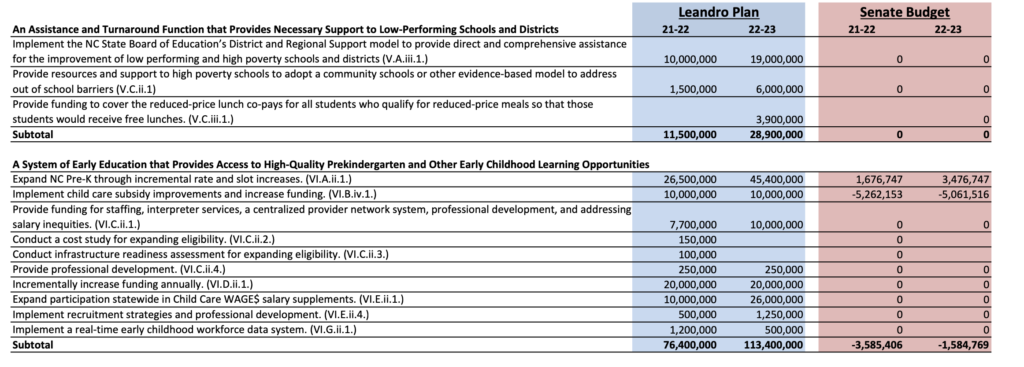



Low-performing schools and districts
Beverly Emory, executive director of Leandro implementation at the state Department of Public Instruction (DPI), talked about some of the actions happening at DPI to fulfill needs associated with Leandro. The slide below shows some actions that took place this fall.
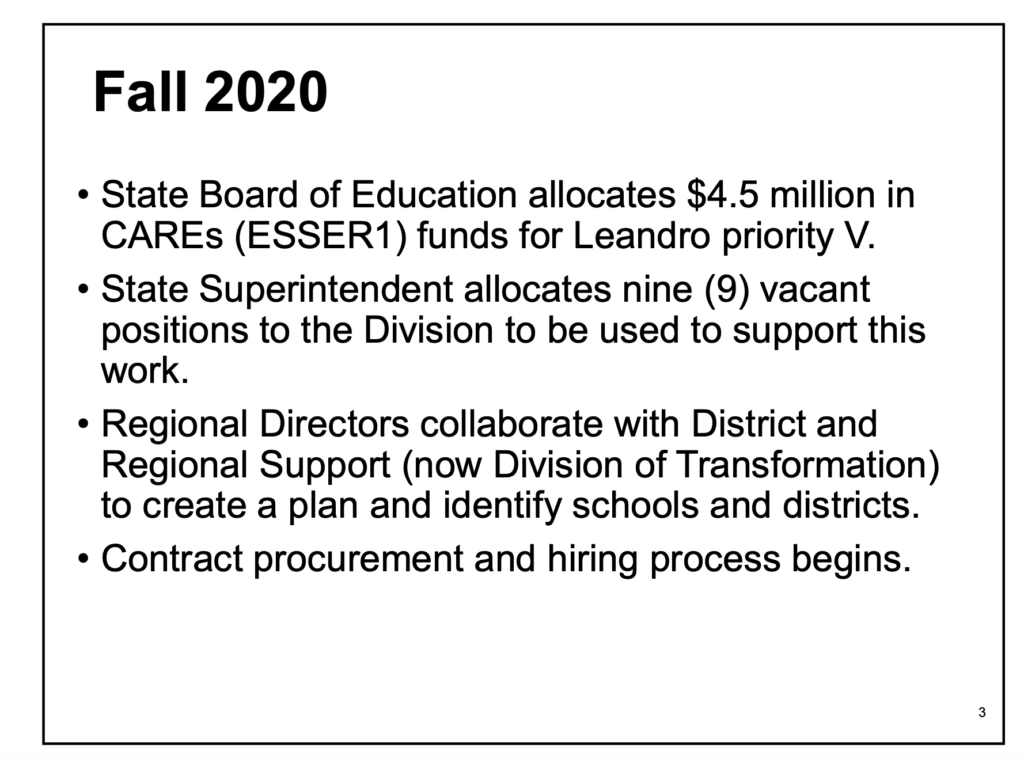

Emory pointed out that the money being used by DPI to fund much of its Leandro work came from the first round of COVID-19 federal relief. She said DPI had hoped to get more money from the second round of federal COVID-19 relief, but it did not. She said the agency is still hopeful it can get money from the third round.
“We are operating off of non-recurring federal dollars,” she said, adding of DPI’s work in this area: “It takes time. It takes people. It is not overnight.”
She also talked about how those federal CARES Act funds are being used to serve specific low-performing districts and schools. See those notes in the slides below. Here is her full presentation.
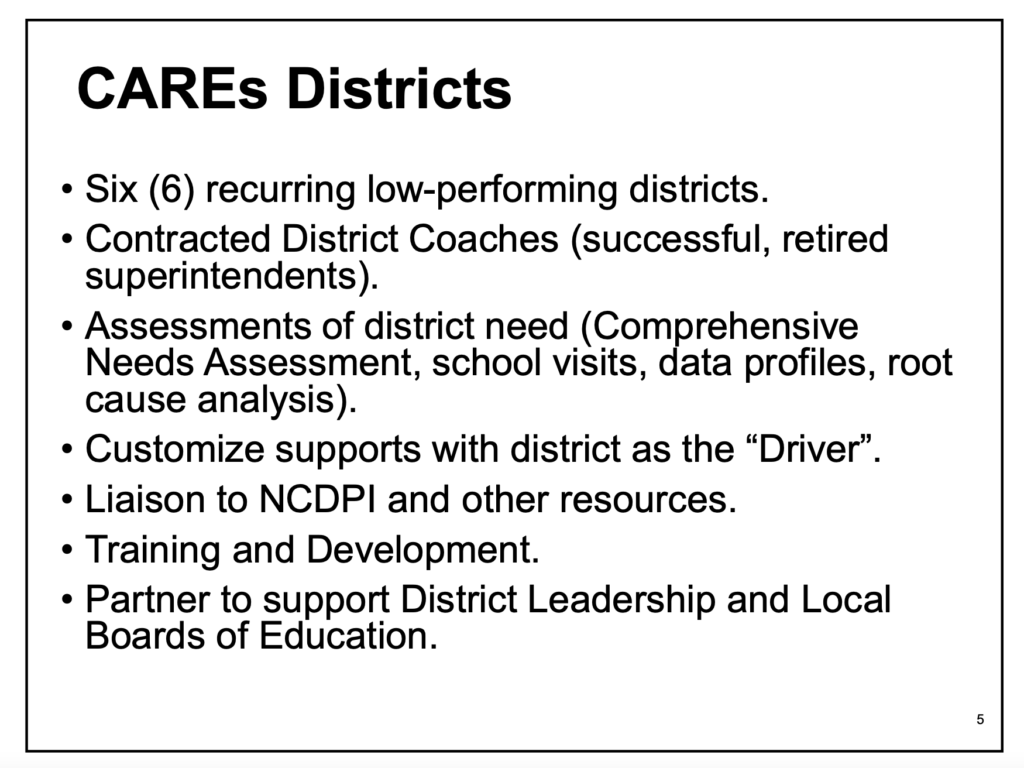

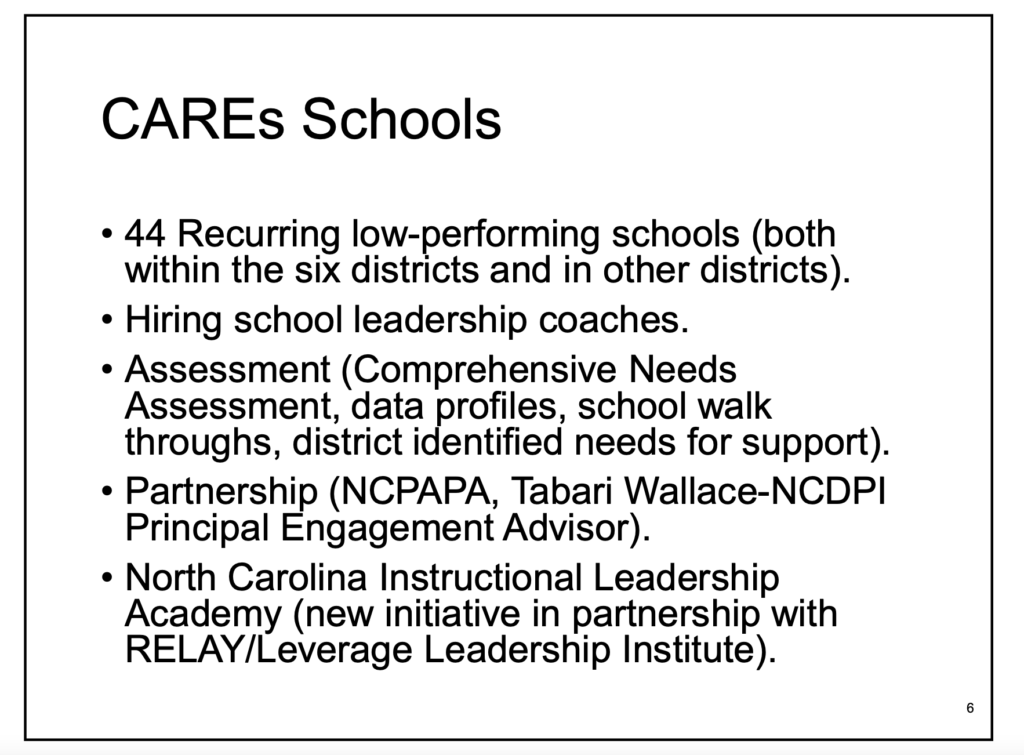

Early childhood
Susan Gale Perry, chief deputy secretary for opportunity and well-being at the state Department of Health and Human Services, talked about progress on early childhood when it comes to Leandro recommendations.
She said the state was able to stave off a lot of the worst effects of the pandemic on programs such as Smart Start and the child care industry at large, in part thanks to federal funds. She said child care enrollment is returning but more slowly than it fell during the pandemic. She put enrollment at about 70% of pre-pandemic numbers.
“There is tremendous competition for low-wage workers,” she said, adding that early-childhood programs are having a tough time attracting and retaining enough teachers for their programs.
Perry said that the Division of Child Development and Early Education has taken steps to start its work on Leandro using federal funding received back in 2019. The slide below shows where that money came from and what it’s being used for.
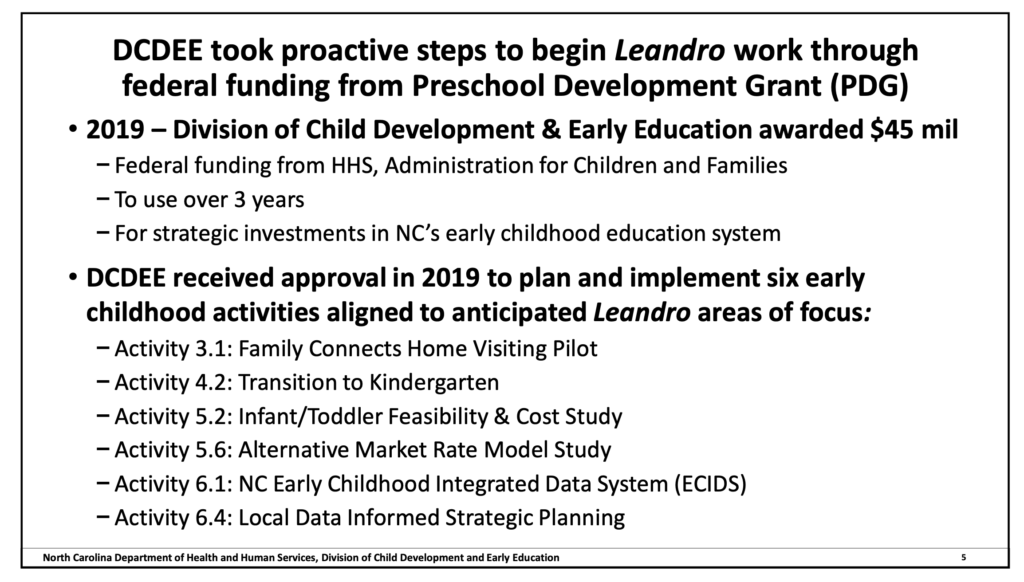

She went on to talk about how federal COVID-19 relief is contributing to the early childhood Leandro work.
Below is a screenshot of federal dollars the state has received for child care.
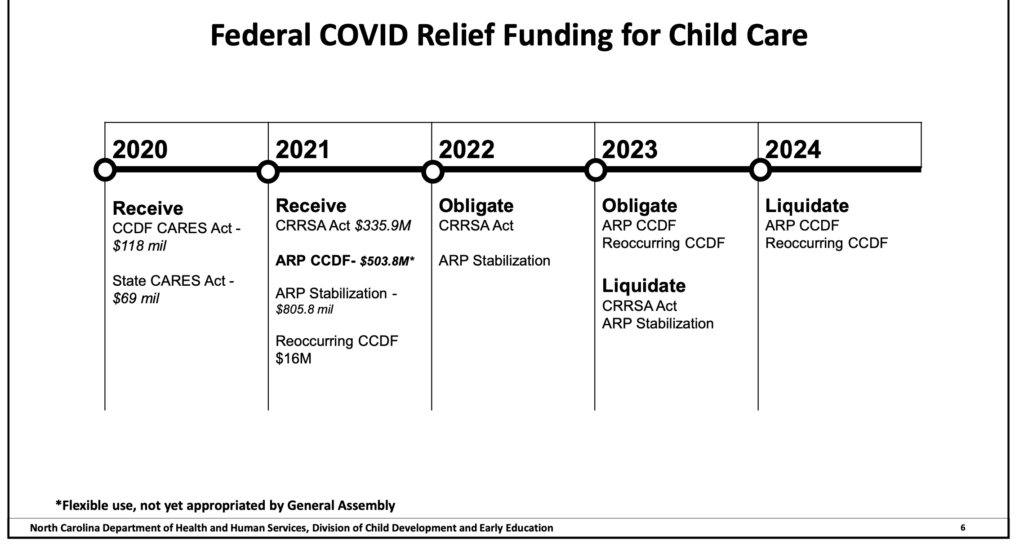

Perry also walked commission members through a chart that compares Leandro investments on early childhood priorities between the governor’s budget and the Senate’s budget. The governor’s budget attempts to implement the first two years of the comprehensive Leandro plan.
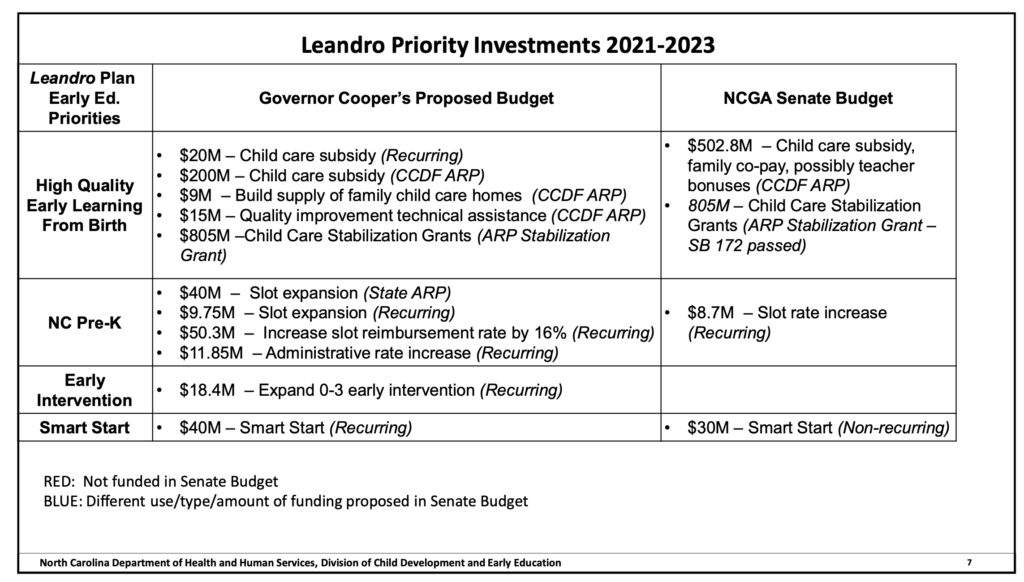

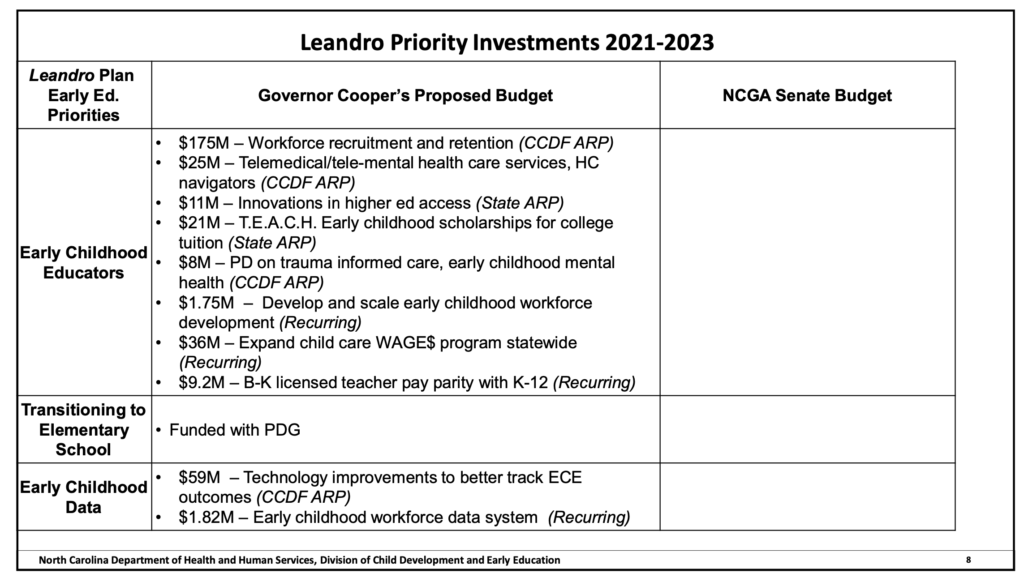

Analyzing impact
Rick Glazier, executive director of the NC Justice Center as well as a commission member, and Nordstrom, presented on a Leandro impact analysis tool.
Glazier said that the question at the Justice Center about the comprehensive plan was how to measure the impact of its provisions and line items to see what they mean for each district in the state if the plan was fully implemented.
Nordstrom presented on the impact tool, available at everychildnc.org. It shows how different allotment and position changes in the Leandro comprehensive plan will impact individual districts. You can see that tool here. Just pick a district from the drop down menu to see how the district will be impacted.
Nordstrom pointed out that the tool doesn’t include money for additional teacher salary.
The comprehensive Leandro Plan calls for a “wage comparability study to determine competitive pay for educators in comparison to professions that require similar education and credentials.”
Next steps
The question came up as to what the purpose of the commission is since it already approved and put forth recommendations in January 2020. Wilson suggested that there is a lot of interest in the commission playing an advocacy and communication role in pushing the implementation of the comprehensive remedial plan. He said, for example, the impact tool could be used in meeting with districts to help them understand the importance of the comprehensive plan to their districts.
Wilson said that commission members should expect to meet again but that there wasn’t yet a specific date for the next meeting.
Background
The Supreme Court of North Carolina, in its landmark Leandro v. State of North Carolina decision, affirmed the state constitutional right of every child to have access to a sound, basic education. The court also ruled that North Carolina was not meeting this constitutional requirement. The courts and parties have been trying to figure out how to make this right ever since — the comprehensive remedial plan signed by Judge David Lee earlier this month is the most ambitious attempt made yet to do so.
Cooper created the Commission on Access to Sound Basic Education back in 2017, and it has been meeting for the last two years to figure out how to meet the promise of the Leandro case.


